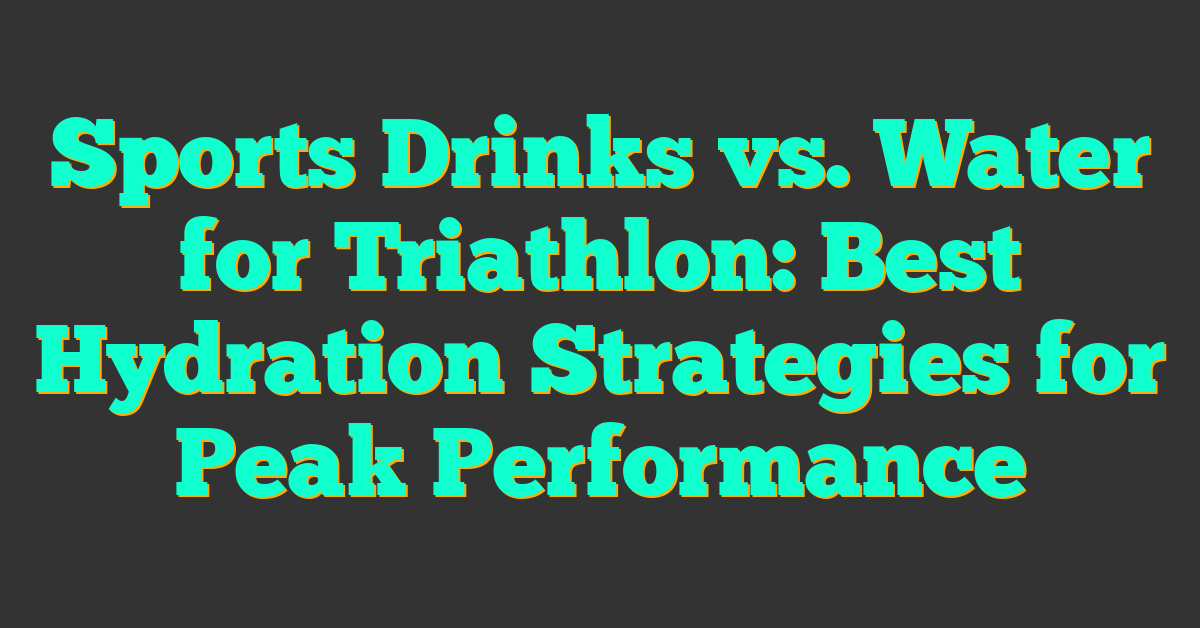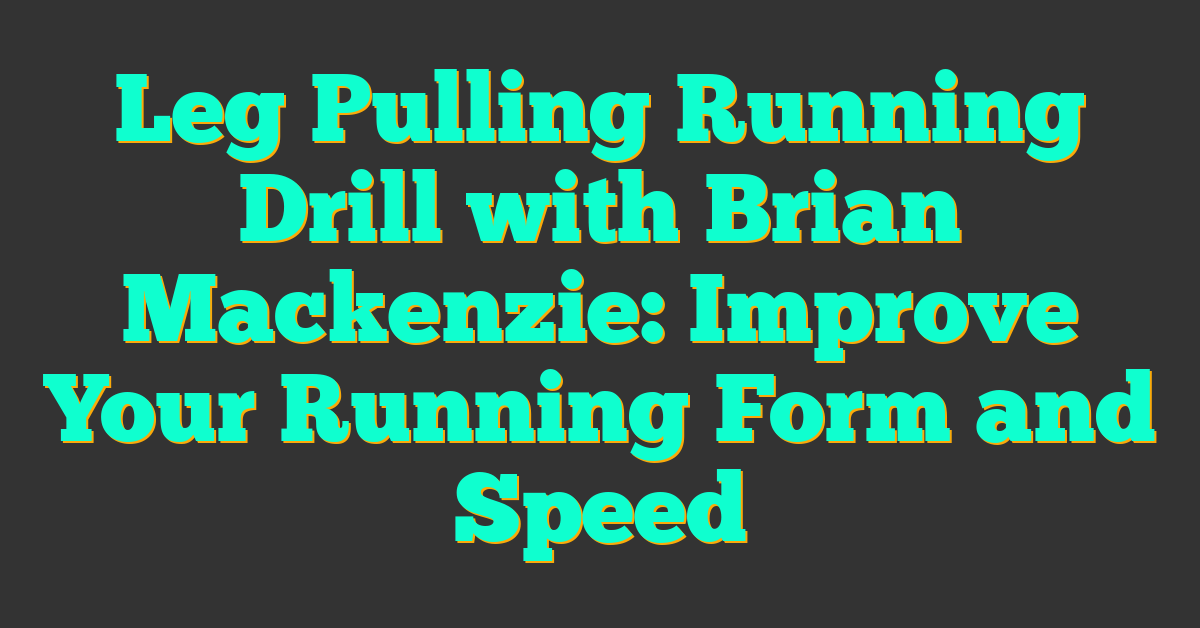Training for a triathlon pushes your limits and demands smart hydration strategies. I’ve often debated whether sticking to water is sufficient or if sports drinks can provide that crucial boost during the race.

Finding the right balance can really impact your performance and endurance. In this article, I’ll dive into the pros and cons of both water and sports drinks to help you make the best choice for your next triathlon journey.
Benefits Of Sports Drinks
Sports drinks offer specific advantages that can enhance performance during triathlons. They provide essential components tailored to the demands of endurance events.
Electrolyte Replacement
Maintaining electrolyte balance is crucial for muscle function and preventing cramps. Sports drinks contain sodium, potassium, magnesium, and calcium, which replace minerals lost through sweat. Proper electrolyte levels help sustain endurance and reduce the risk of dehydration-related issues.
Energy Boost
Endurance athletes require a steady energy supply to perform optimally. Sports drinks include carbohydrates, typically in the form of glucose or fructose, that supply immediate energy. This quick-access fuel helps sustain performance during prolonged activities, delaying fatigue and improving overall race outcomes.
Benefits Of Water
Choosing water for hydration offers several advantages during triathlon training and racing. It ensures optimal fluid balance without added sugars or artificial ingredients.
Hydration Simplicity
Water hydrates efficiently without extra ingredients or preparations. Water’s ease of use makes it ideal during long training sessions.
Calorie Control
Water hydration avoids extra calorie intake. Water’s zero calories help me maintain energy balance.
Performance Impact
Choosing between sports drinks and water can significantly influence triathlon performance. I analyze key factors that affect endurance, muscle function, and overall race outcomes.
Energy and Endurance
Sports drinks provide carbohydrates, offering a quick energy source. This boost helps sustain performance during prolonged events. For example, consuming 30 grams of carbohydrates per hour can delay fatigue.
| Beverage | Carbohydrates per 500ml | Energy Boost |
|---|---|---|
| Sports Drink | 30 grams | Sustained energy |
| Water | 0 grams | Immediate hydration |
Electrolyte Balance
Maintaining electrolyte levels is crucial for muscle function and preventing cramps. Sports drinks contain sodium, potassium, and magnesium, which replace electrolytes lost through sweat. In contrast, water lacks these essential minerals.
| Electrolyte | Sports Drink | Water |
|---|---|---|
| Sodium | 460 mg | 0 mg |
| Potassium | 80 mg | 0 mg |
| Magnesium | 25 mg | 0 mg |
Hydration Efficiency
Proper hydration enhances oxygen delivery to muscles and supports thermoregulation. While water effectively hydrates, sports drinks can enhance fluid absorption due to their electrolyte content. This combination can improve overall hydration status during intense training and competition.
Caloric Intake and Weight Management
Sports drinks contain calories from sugars, contributing to energy intake. This can be beneficial for maintaining energy levels but may lead to excess calorie consumption if not managed properly. Water, being calorie-free, supports weight management without affecting energy balance.
| Beverage | Calories per 500ml | Impact on Weight Management |
|---|---|---|
| Sports Drink | 100 calories | May contribute to weight gain if overconsumed |
| Water | 0 calories | Aids in weight management |
Selecting the appropriate hydration strategy depends on individual energy needs, electrolyte loss, and weight management goals. Balancing sports drinks and water intake can optimize performance and support endurance during triathlons.
Health Considerations
Maintaining electrolyte balance is crucial during a triathlon. Sports drinks supply sodium, potassium, and magnesium, which prevent muscle cramps and support nerve function. Without these electrolytes, I risk dehydration and impaired muscle performance, especially in long races.
Sugar content affects energy levels and weight management. Sports drinks provide carbohydrates that fuel my muscles, enhancing endurance and delaying fatigue. However, excessive sugar can lead to unwanted calorie intake. I monitor my intake to balance energy needs without gaining extra weight.
Hydration efficiency impacts overall health. Sports drinks can improve fluid absorption due to their electrolyte composition, ensuring I stay hydrated longer. In contrast, water offers pure hydration without additives, reducing the risk of gastrointestinal issues during intense periods.
Caloric intake from sports drinks supports prolonged exertion but requires careful planning. I use them during extended training sessions to maintain energy levels. For shorter events, water suffices, preventing unnecessary calorie consumption and helping me maintain an optimal energy balance.
Overall, choosing between sports drinks and water depends on my specific health needs during training and competition. I evaluate factors like electrolyte loss, energy requirements, and calorie management to make informed hydration choices that support my triathlon performance.
Cost And Accessibility
Cost Comparison
| Beverage | Cost per Liter | Cost per 500ml Serving |
|---|---|---|
| Sports Drinks | $2.50 | $1.25 |
| Bottled Water | $1.00 | $0.50 |
| Tap Water | $0.02 | $0.01 |
« Leg Pulling Running Drill with Brian Mackenzie: Improve Your Running Form and Speed
Essential Triathlon Gear for Indoor Training: Boost Your Performance at Home »
Sports drinks are more costly than water options. Tap water offers the lowest price, while bottled water balances cost and convenience.
Availability
Water is universally accessible through tap, bottled, and filtered sources. Sports drinks are mainly available in grocery stores, sports retailers, and online platforms. In remote areas, tap water remains the most reliable hydration source, whereas sports drinks may be limited.
Portability
Water bottles are lightweight and easy to carry during training and races. Sports drinks require similar packaging but may need refrigeration to preserve flavor and efficacy. Access to cooling facilities can impact the ease of transporting sports drinks compared to water.
Conclusion
I’ve found that striking the right balance between water and sports drinks can make a big difference in my triathlon performance. Listening to my body and considering the race conditions helps me decide when to hydrate with water and when a sports drink can give me that extra boost. Ultimately it’s about what works best for you and keeps you energized and hydrated throughout the race. Experimenting during training is key to finding your perfect hydration strategy. Here’s to hitting your goals and enjoying every step of your triathlon journey!





![Lamicall Bike Frame Bag Waterproof - [1s Release] [2 in](https://m.media-amazon.com/images/I/41WyOmmNsYL._SL500_.jpg)




